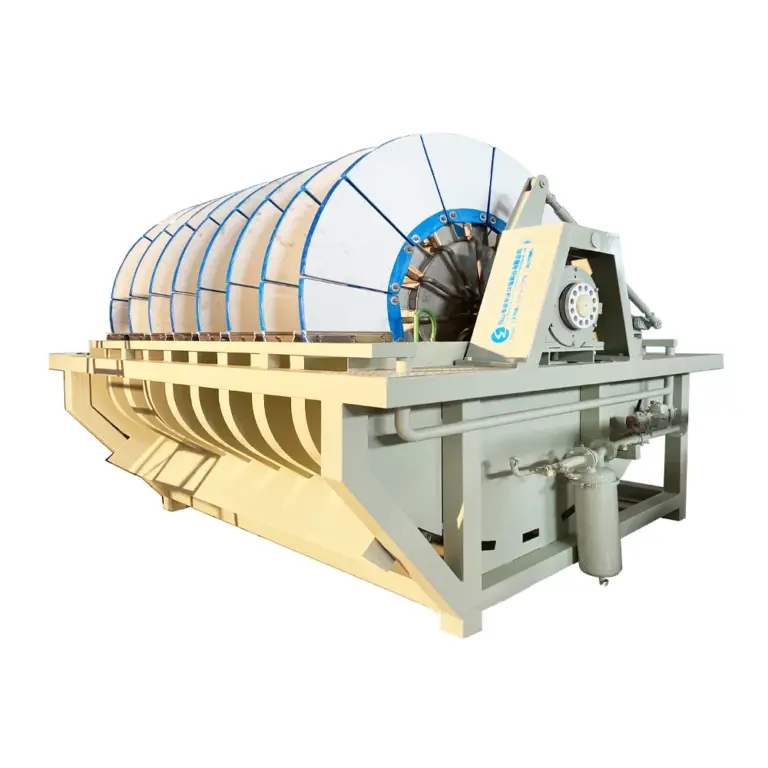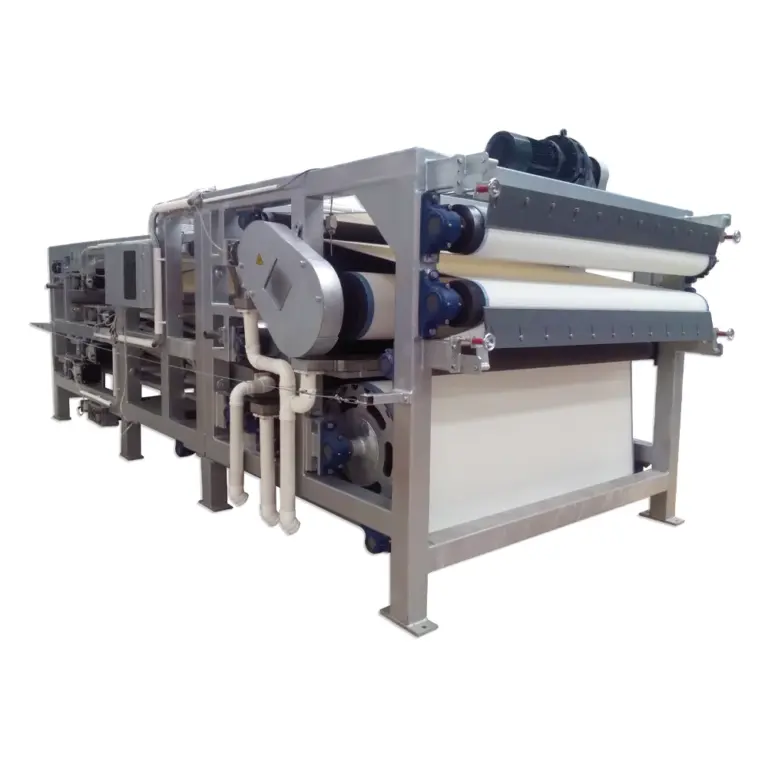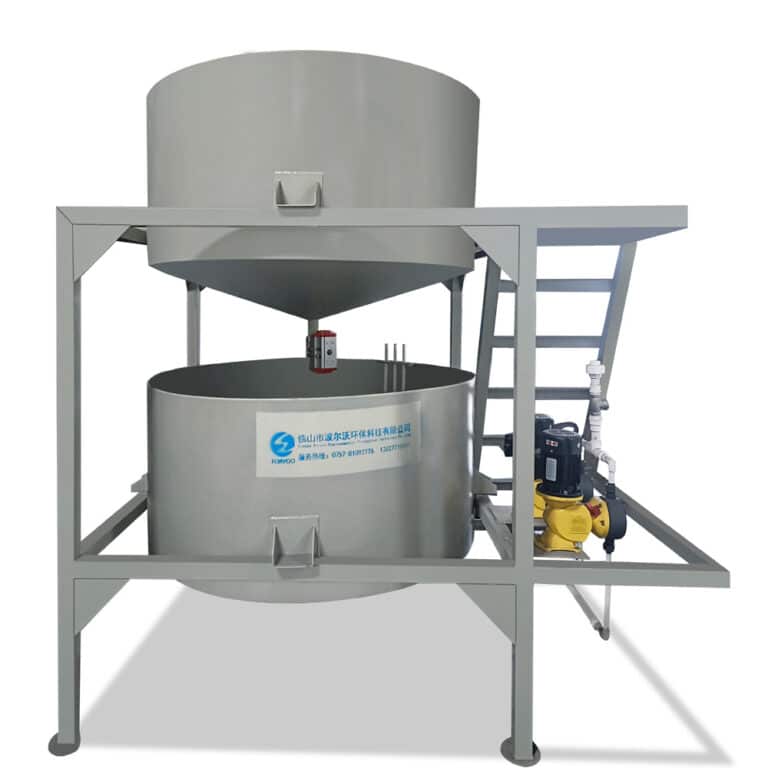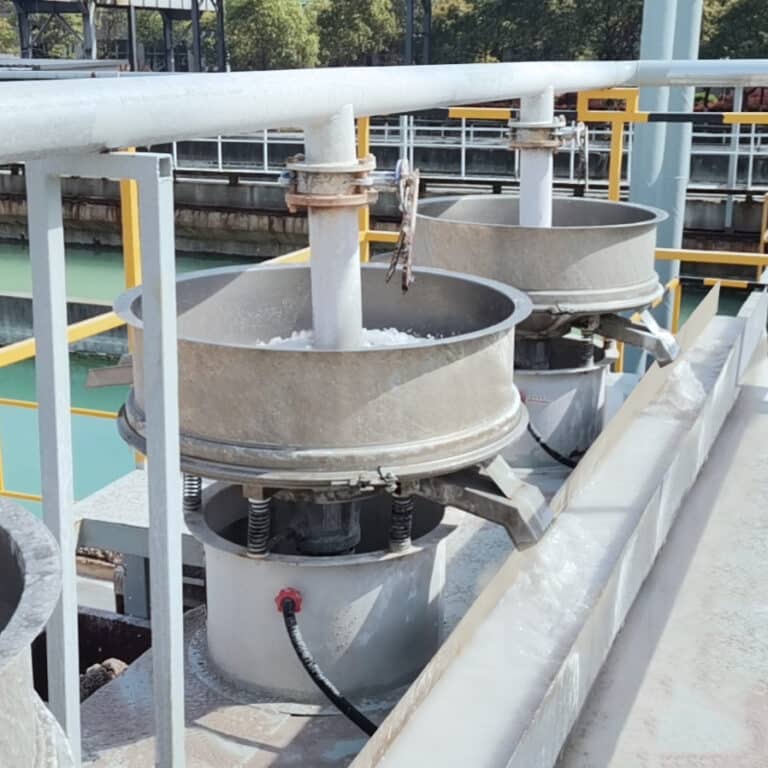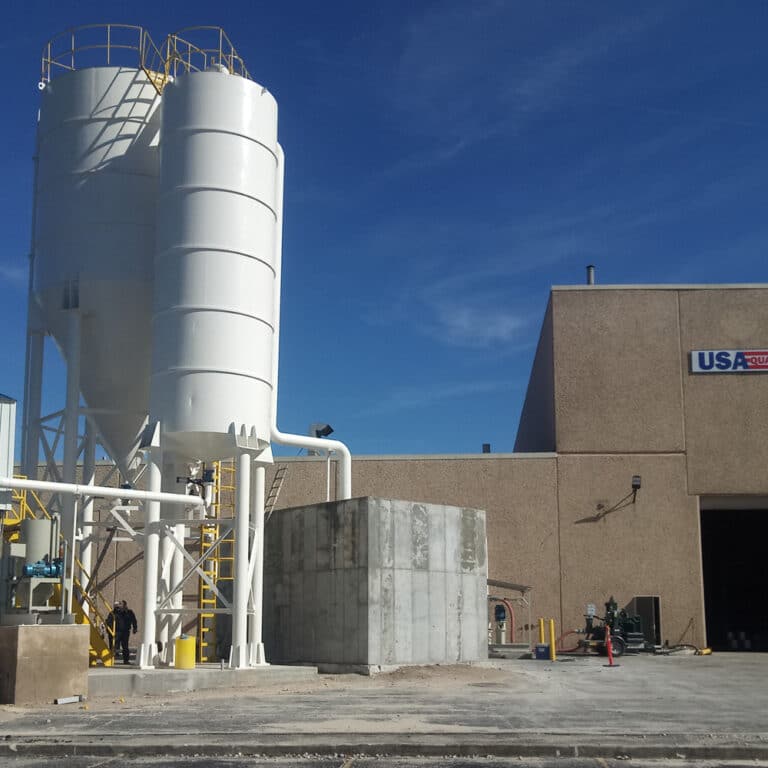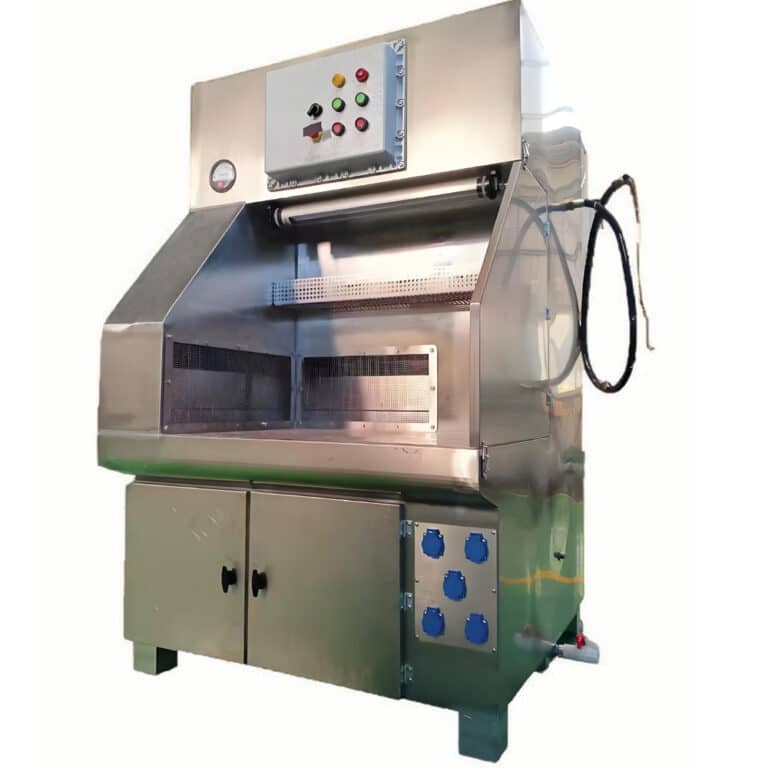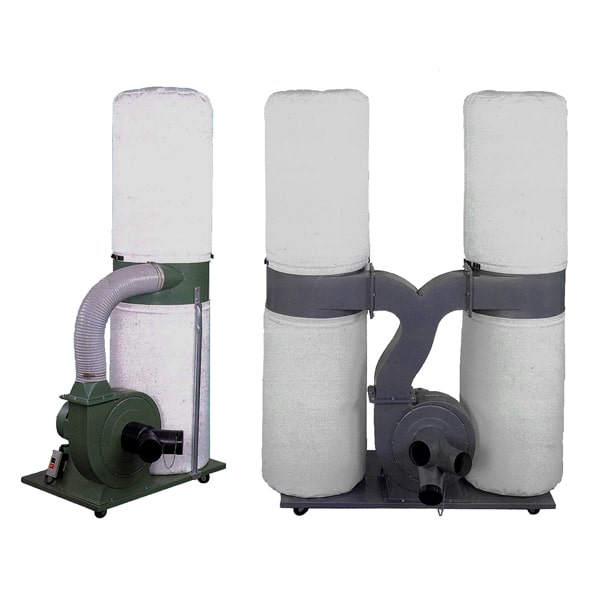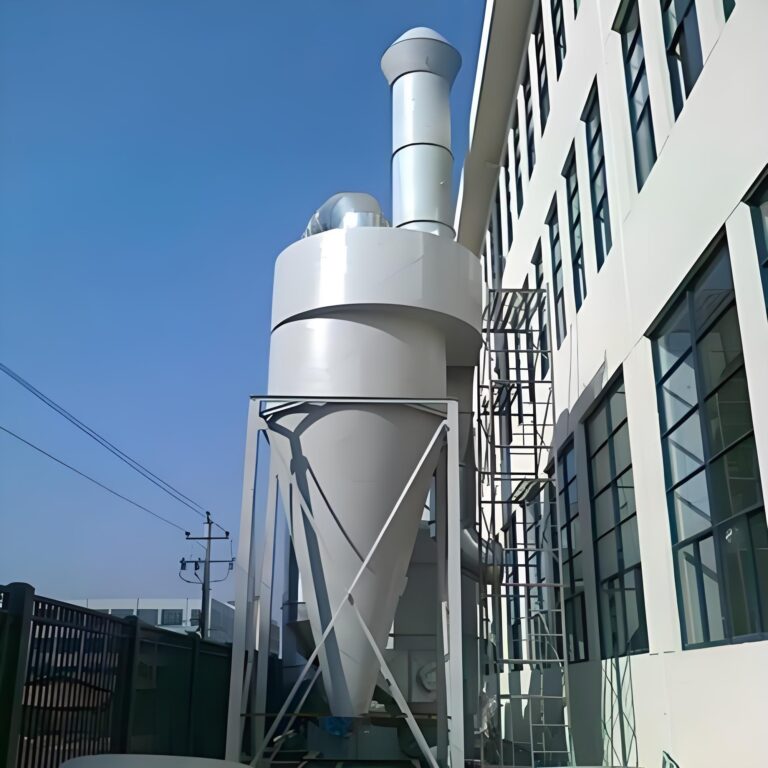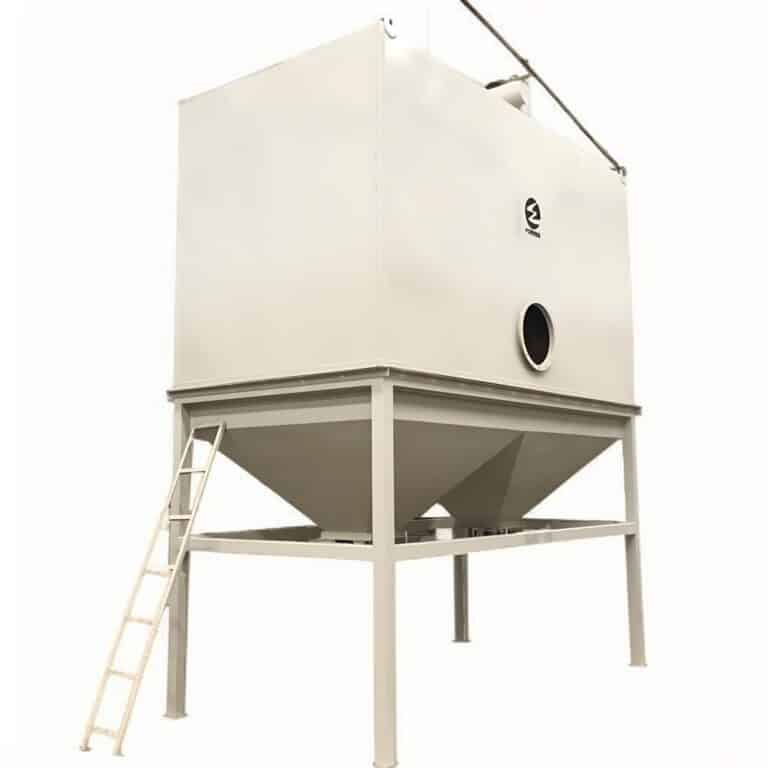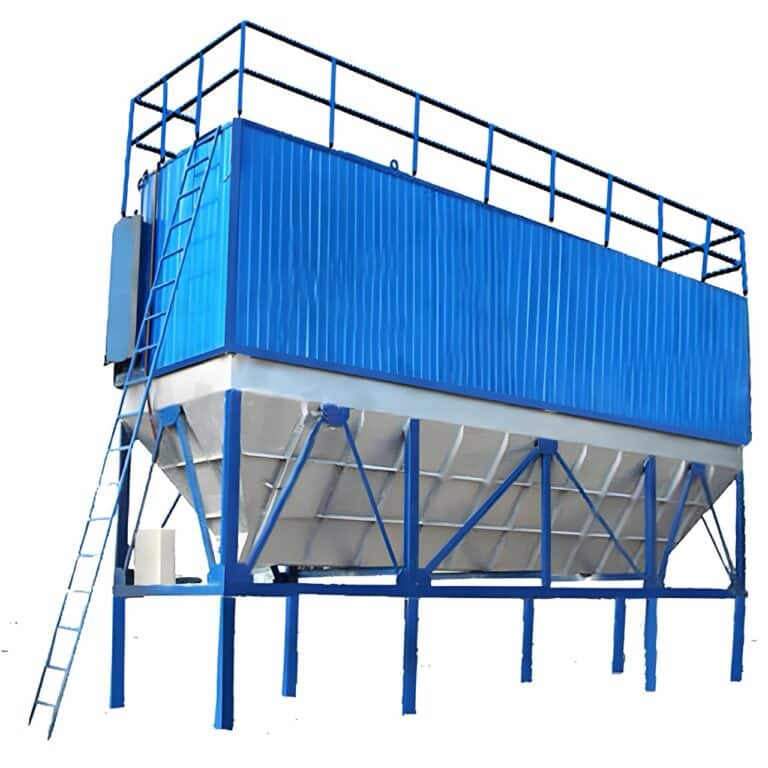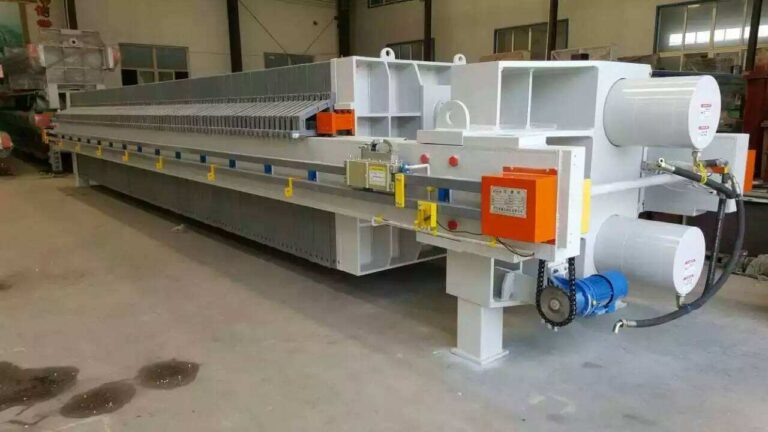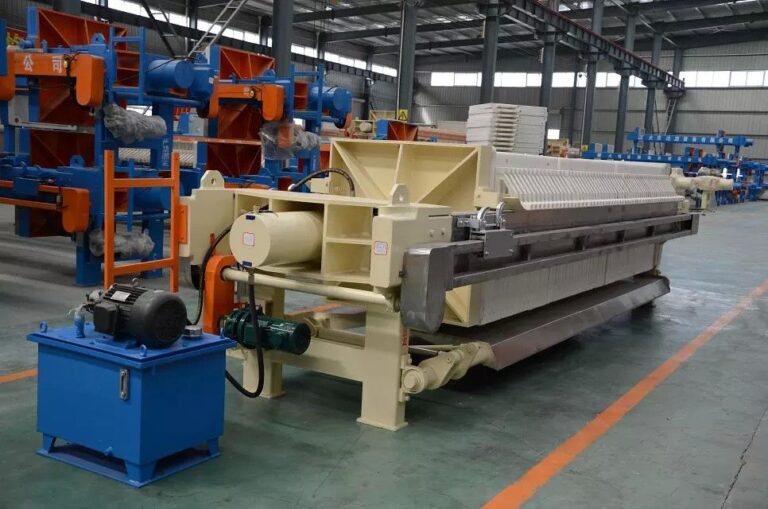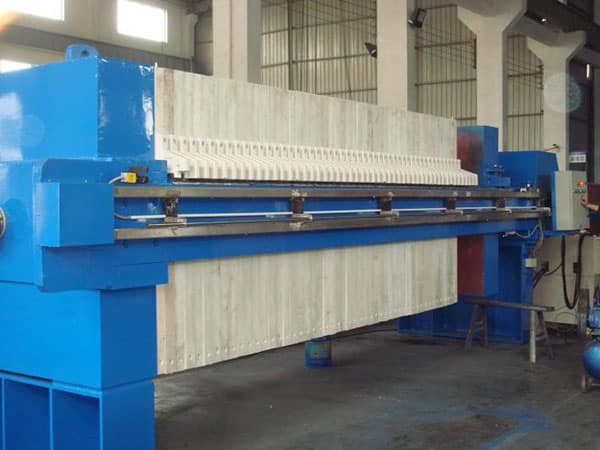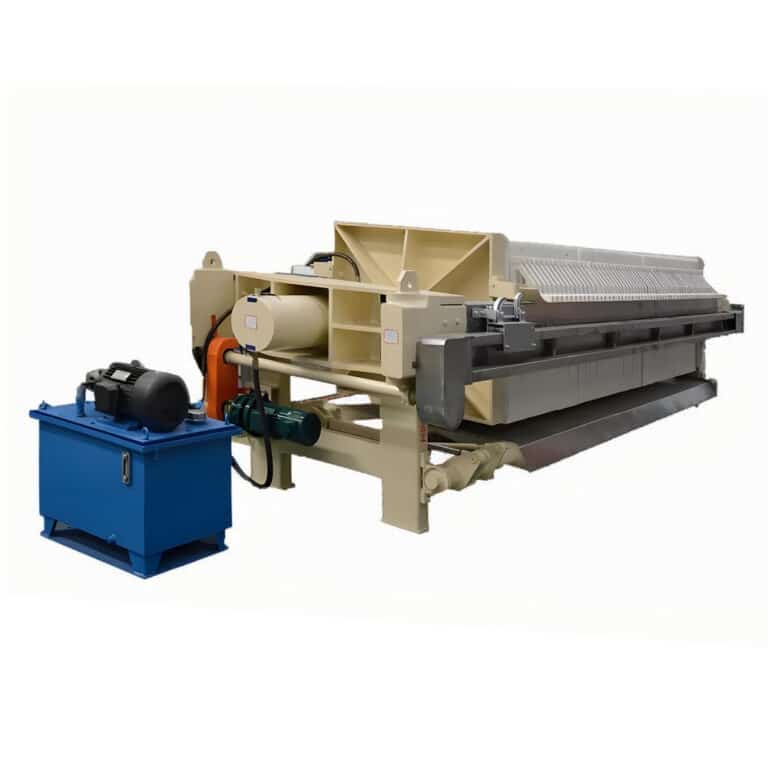Membrane filter presses have become an indispensable tool in the mining industry, revolutionizing mineral processing operations across the globe. These sophisticated devices play a crucial role in separating solids from liquids, enabling efficient dewatering and recovery of valuable materials. As the mining sector continues to evolve, the demand for more effective and environmentally friendly filtration solutions has led to significant advancements in membrane filter press technology.
The integration of membrane filter presses in mining operations has brought about numerous benefits, including improved product quality, reduced operational costs, and enhanced environmental sustainability. These high-performance machines are designed to handle a wide range of slurries and suspensions, making them versatile tools for various mineral processing applications. From base metal extraction to precious metal recovery, membrane filter presses have proven their worth in optimizing production processes and maximizing resource utilization.
As we delve deeper into the world of membrane filter presses in mining, we'll explore their fundamental principles, key components, and diverse applications within the industry. We'll also examine the latest technological innovations that are shaping the future of mineral processing and discuss how these advancements are addressing the evolving needs of modern mining operations.
Membrane filter presses have emerged as a game-changing technology in the mining industry, offering unparalleled efficiency in solid-liquid separation and mineral recovery processes.
How do membrane filter presses work in mineral processing?
Membrane filter presses operate on a simple yet ingenious principle that makes them highly effective in mineral processing applications. At their core, these devices use pressure to force liquid through a filtering medium, separating solids from liquids in mineral slurries.
In the context of mining operations, membrane filter presses typically handle slurries containing valuable minerals or waste materials. The process begins with the slurry being pumped into the filter press chambers. As pressure is applied, the liquid component is forced through the filter cloth, leaving behind a solid cake of mineral particles.
What sets membrane filter presses apart is their unique design featuring flexible membranes within each chamber. These membranes can be inflated with air or liquid, exerting additional pressure on the filter cake. This extra squeezing action results in even drier cakes and more efficient dewatering.
Membrane filter presses can achieve moisture content as low as 7-15% in the final filter cake, significantly surpassing the performance of conventional filter presses.
| Feature | Benefit |
|---|---|
| Flexible membranes | Enhanced dewatering efficiency |
| High pressure capability | Drier filter cakes |
| Automated operation | Reduced labor costs |
| Closed system | Minimized environmental impact |
The use of membrane filter presses in mineral processing offers numerous advantages, including higher throughput, improved product quality, and reduced energy consumption. By efficiently removing water from mineral concentrates, these presses help minimize transportation costs and optimize downstream processes. Moreover, the ability to recover and recycle process water contributes to more sustainable mining practices.
As the mining industry continues to face challenges related to water management and environmental regulations, the role of membrane filter presses in mineral processing is becoming increasingly critical. These versatile machines are not just filtering devices; they are essential tools for improving overall operational efficiency and reducing the environmental footprint of mining activities.
What are the key components of a Mining industry membrane filter press?
A mining industry membrane filter press is a complex piece of equipment comprised of several crucial components working in harmony to achieve optimal filtration results. Understanding these key elements is essential for anyone involved in mineral processing operations.
The foundation of a membrane filter press is its robust frame, designed to withstand the high pressures involved in the filtration process. Within this frame, you'll find a series of filter plates, each featuring a membrane that can be inflated to apply additional pressure during the filtration cycle.
Filter cloths are another vital component, acting as the primary barrier for solid-liquid separation. These cloths are carefully selected based on the specific mineral slurry being processed, ensuring maximum filtration efficiency and longevity.
High-quality filter cloths can significantly impact the performance of a membrane filter press, with some advanced materials capable of extending operational life by up to 30% compared to standard options.
| Component | Function |
|---|---|
| Filter plates | Provide support and house membranes |
| Membranes | Apply additional pressure for enhanced dewatering |
| Filter cloths | Separate solids from liquids |
| Hydraulic system | Controls plate movement and sealing |
| Feed pump | Delivers slurry to the filter press |
The hydraulic system is the powerhouse of the membrane filter press, responsible for opening and closing the filter plates, as well as maintaining the high pressures required for effective filtration. This system works in tandem with a feed pump, which delivers the mineral slurry to the filter press at the appropriate pressure and flow rate.
Advanced membrane filter presses also incorporate sophisticated control systems, allowing for automated operation and real-time monitoring of key parameters. These controls ensure optimal performance and enable operators to make quick adjustments based on changing slurry characteristics or production requirements.
As technology continues to evolve, PORVOO and other leading manufacturers are incorporating innovative features such as self-cleaning mechanisms, rapid cake discharge systems, and advanced sensor arrays to further enhance the efficiency and reliability of membrane filter presses in mining applications.
What types of minerals can be processed using membrane filter presses?
Membrane filter presses demonstrate remarkable versatility in mineral processing, capable of handling a wide array of materials across various mining sectors. From base metals to precious minerals, these advanced filtration systems have proven their worth in numerous applications.
One of the most common uses of membrane filter presses is in the processing of base metals such as copper, zinc, and nickel. These presses excel at dewatering concentrates, producing dry cakes that are easier to handle and transport. Additionally, they play a crucial role in treating tailings and recovering valuable metals from waste streams.
In the realm of precious metals, membrane filter presses are indispensable for processing gold and silver ores. They are particularly effective in cyanide leaching circuits, where efficient solid-liquid separation is critical for maximizing metal recovery and minimizing environmental impact.
Membrane filter presses have been shown to increase gold recovery rates by up to 2% in some operations, translating to significant economic benefits for mining companies.
| Mineral Type | Application |
|---|---|
| Copper | Concentrate dewatering |
| Gold | Cyanide leaching circuits |
| Iron ore | Tailings treatment |
| Rare earth elements | Extraction processes |
| Coal | Fine coal dewatering |
Beyond metallic minerals, membrane filter presses are also widely used in the processing of industrial minerals such as kaolin, bentonite, and calcium carbonate. These materials often require precise control over moisture content, which membrane filter presses can provide with exceptional accuracy.
The adaptability of membrane filter presses extends to more challenging materials as well. In coal mining, for instance, these presses have proven highly effective in dewatering fine coal slurries, helping to recover valuable product that might otherwise be lost to waste.
As the mining industry continues to explore new frontiers, membrane filter presses are finding applications in emerging areas such as rare earth element extraction and lithium production from brine. Their ability to handle diverse slurry compositions and achieve high levels of solid-liquid separation makes them invaluable tools in these cutting-edge mineral processing operations.
How do membrane filter presses improve mineral recovery rates?
Membrane filter presses have emerged as a game-changer in mineral recovery, significantly boosting efficiency and yield across various mining operations. These advanced filtration systems contribute to improved recovery rates through several key mechanisms.
Firstly, membrane filter presses excel at producing drier filter cakes compared to conventional dewatering methods. This enhanced moisture removal not only reduces the volume of material to be handled but also improves the efficiency of subsequent processing steps, such as smelting or refining.
The precise control over filtration parameters offered by membrane filter presses allows for optimal solid-liquid separation. This precision is particularly crucial when dealing with fine particles or complex ore compositions, where even small improvements in separation efficiency can lead to substantial gains in mineral recovery.
Studies have shown that implementing membrane filter presses in certain mineral processing circuits can increase overall recovery rates by 3-5%, translating to millions of dollars in additional revenue for large-scale operations.
| Factor | Impact on Recovery |
|---|---|
| Drier filter cakes | Improved downstream processing |
| Precise filtration control | Enhanced separation of fine particles |
| Reduced loss of fines | Higher overall mineral yield |
| Improved water recycling | More efficient use of resources |
Another significant advantage of membrane filter presses is their ability to minimize the loss of fine particles. In many mineral processing operations, valuable fines can be lost in the filtrate during conventional dewatering. Membrane filter presses, with their high-efficiency filtration media and adjustable pressure settings, can capture a higher percentage of these fines, directly contributing to improved recovery rates.
Furthermore, the efficient solid-liquid separation achieved by membrane filter presses facilitates better water management within the processing circuit. By producing clearer filtrates, these presses enable more effective water recycling, which not only conserves resources but also helps maintain consistent slurry densities throughout the process, leading to more stable and efficient mineral recovery.
The implementation of membrane filter presses often goes hand in hand with process optimization efforts. The data generated by these advanced systems can provide valuable insights into slurry characteristics and filtration performance, allowing operators to fine-tune their processes for maximum mineral recovery.
As mining companies continue to face challenges such as declining ore grades and stricter environmental regulations, the role of membrane filter presses in improving mineral recovery rates becomes increasingly critical. These sophisticated machines are not just filtration devices; they are key enablers of more efficient and sustainable mining practices.
What are the environmental benefits of using membrane filter presses in mining?
In an era where environmental sustainability is paramount, membrane filter presses have emerged as a crucial technology for reducing the ecological footprint of mining operations. These advanced filtration systems offer a range of environmental benefits that align with the industry's growing focus on responsible resource extraction.
One of the most significant environmental advantages of membrane filter presses is their ability to dramatically reduce water consumption in mineral processing. By efficiently dewatering slurries and producing clear filtrates, these presses enable a high degree of water recycling within the mining operation. This not only conserves precious water resources but also minimizes the discharge of potentially contaminated water into the environment.
The production of drier filter cakes by membrane filter presses also has positive environmental implications. Drier material requires less energy for further processing or transportation, leading to reduced fuel consumption and lower greenhouse gas emissions associated with mining activities.
Implementation of advanced membrane filter press systems has been shown to reduce water consumption in some mining operations by up to 90%, significantly lowering the industry's impact on local water resources.
| Environmental Aspect | Benefit |
|---|---|
| Water conservation | High recycling rates |
| Energy efficiency | Reduced processing and transport energy |
| Waste reduction | Minimized tailings volume |
| Chemical usage | Decreased reagent consumption |
| Land impact | Smaller footprint for waste storage |
Membrane filter presses play a crucial role in minimizing the volume of tailings and waste material produced by mining operations. By achieving higher solid content in filter cakes, these presses reduce the area required for tailings storage facilities, thereby decreasing the overall land disturbance associated with mining activities.
The efficient solid-liquid separation provided by membrane filter presses also contributes to reduced chemical usage in mineral processing. With clearer filtrates and drier solids, less reagents are typically required in subsequent processing steps, minimizing the potential for chemical contamination of the environment.
Furthermore, the closed-loop nature of membrane filter press systems helps contain dust and potential contaminants, reducing air and soil pollution around mining sites. This containment is particularly important when dealing with potentially hazardous materials or in environmentally sensitive areas.
As mining companies increasingly adopt sustainable practices, membrane filter presses are becoming an integral part of their environmental management strategies. These versatile machines not only help meet regulatory requirements but also contribute to the industry's broader goals of resource conservation and environmental stewardship.
How do membrane filter presses compare to other dewatering technologies in mining?
When it comes to dewatering in the mining industry, membrane filter presses stand out as a highly effective solution, but it's important to understand how they compare to other technologies commonly used in mineral processing.
Membrane filter presses offer several advantages over traditional dewatering methods such as thickeners, centrifuges, and vacuum filters. One of the key differentiators is the ability of membrane filter presses to achieve significantly lower moisture content in the final filter cake, often surpassing the capabilities of other technologies.
Compared to thickeners, which are primarily used for initial dewatering, membrane filter presses can handle a wider range of particle sizes and produce much drier solids. While thickeners are excellent for reducing the volume of slurries, they typically cannot achieve the low moisture levels required for many mining applications.
In head-to-head comparisons, membrane filter presses have been shown to reduce final cake moisture content by up to 50% compared to centrifuges, resulting in substantial savings in downstream processing and transportation costs.
| Technology | Typical Cake Moisture | Footprint | Energy Consumption |
|---|---|---|---|
| Membrane Filter Press | 7-15% | Medium | Medium |
| Centrifuge | 15-25% | Small | High |
| Vacuum Filter | 20-30% | Large | High |
| Belt Filter Press | 25-35% | Large | Low |
Centrifuges, while effective for certain applications, often struggle with very fine particles and can have higher operating costs due to their energy-intensive nature. Membrane filter presses, on the other hand, can handle a broader range of particle sizes and typically have lower long-term operational expenses.
Vacuum filters, such as drum filters or disc filters, have been widely used in mining for many years. However, they are limited in the pressure they can apply and often produce wetter filter cakes compared to membrane filter presses. Additionally, vacuum filters generally have a larger footprint and higher energy consumption.
Belt filter presses offer continuous operation and low energy consumption but are typically less effective at achieving low moisture contents, especially with fine particles. Membrane filter presses, while operating in batches, can achieve much drier cakes and handle more challenging materials.
One area where membrane filter presses truly excel is in their flexibility and adaptability to different slurry characteristics. The ability to adjust pressure, cycle times, and even membrane inflation allows for fine-tuning of the filtration process to optimize results for specific minerals or changing feed conditions.
While each dewatering technology has its place in the mining industry, membrane filter presses have carved out a niche as a versatile and high-performance solution, particularly for applications requiring very low moisture content or dealing with challenging materials. As mining operations continue to seek ways to improve efficiency and reduce costs, the advantages offered by membrane filter presses make them an increasingly attractive option for many dewatering applications.
What maintenance considerations are important for mining membrane filter presses?
Proper maintenance is crucial for ensuring the optimal performance and longevity of membrane filter presses in mining applications. These sophisticated machines operate under demanding conditions and require regular attention to maintain their efficiency and reliability.
One of the most critical maintenance aspects is the regular inspection and replacement of filter cloths. These components are subject to wear and tear from abrasive mineral slurries and can significantly impact filtration efficiency if not properly maintained. Implementing a proactive cloth replacement schedule based on operating hours or filtration cycles can help prevent unexpected downtime and maintain consistent performance.
The membranes themselves also require careful attention. Regular inspection for signs of wear, damage, or leaks is essential to prevent failures that could compromise filtration efficiency or lead to contamination of the filtered product.
Implementing a comprehensive preventive maintenance program for membrane filter presses can reduce unplanned downtime by up to 70% and extend the overall lifespan of the equipment by 25% or more.
| Maintenance Task | Frequency | Impact |
|---|---|---|
| Filter cloth inspection | Daily | Ensures optimal filtration |
| Membrane check | Weekly | Prevents leaks and failures |
| Hydraulic system service | Monthly | Maintains proper pressure |
| Control system calibration | Quarterly | Ensures accurate operation |
| Complete overhaul | Annually | Extends equipment life |
The hydraulic system, which is the heart of the membrane filter press, requires regular servicing to maintain proper pressure and ensure smooth operation. This includes checking fluid levels, replacing filters, and inspecting seals and hoses for signs of wear or leakage.
Lubrication is another key aspect of membrane filter press maintenance. Moving parts such as plate shifters, closing mechanisms, and transport systems need regular greasing to prevent excessive wear and ensure smooth operation.
In mining environments, where dust and abrasive particles are common, special attention must be paid to keeping the filter press clean. Regular cleaning of plates, frames, and filtrate channels helps prevent build-up that could affect performance or lead to corrosion.
The control systems and instrumentation that govern the operation of modern membrane filter presses also require periodic calibration and maintenance. This ensures accurate control over filtration parameters and helps optimize performance for different mineral slurries.
Training operators and maintenance personnel in proper care and operation of membrane filter presses is essential. Well-trained staff can identify potential issues early, perform routine maintenance tasks effectively, and operate the equipment in a way that minimizes wear and maximizes efficiency.
As membrane filter press technology continues to advance, maintenance practices are evolving to incorporate predictive maintenance techniques. By leveraging data from sensors and monitoring systems, mining operations can anticipate maintenance needs, schedule interventions proactively, and minimize disruptions to production.
Proper maintenance of mining membrane filter presses is not just about preventing breakdowns; it's about optimizing performance, extending equipment life, and ensuring consistent, high-quality filtration results. By investing in comprehensive maintenance programs, mining companies can maximize the return on their investment in this critical dewatering technology.
What future developments can we expect in membrane filter press technology for mining?
The future of membrane filter press technology in the mining industry looks promising, with ongoing research and development efforts aimed at enhancing performance, efficiency, and sustainability. As the demands of mineral processing evolve, we can expect to see several exciting developments in this crucial technology.
One of the most anticipated advancements is the integration of artificial intelligence and machine learning algorithms into membrane filter press control systems. These smart systems will be capable of real-time optimization, adjusting filtration parameters on the fly based on slurry characteristics and desired outcomes. This level of automation will not only improve efficiency but also reduce the need for constant operator intervention.
Another area of focus is the development of advanced materials for filter cloths and membranes. Researchers are exploring nanomaterials and smart fabrics that could dramatically improve filtration efficiency while extending the lifespan of these critical components.
Industry experts predict that next-generation membrane filter presses could achieve up to 30% higher throughput and 15% lower energy consumption compared to current models, driven by advancements in materials science and process control.
| Future Development | Potential Impact |
|---|---|
| AI-driven control systems | Optimized performance and reduced operator dependency |
| Advanced filter materials | Improved efficiency and longer component life |
| Energy recovery systems | Lower operational costs and reduced carbon footprint |
| Modular designs | Enhanced flexibility and easier maintenance |
| In-situ cake washing | Improved product quality and reduced water consumption |
Energy efficiency is a key focus area for future developments. We can expect to see innovations such as energy recovery systems that capture and reuse the pressure energy typically lost during the filtration cycle. This could significantly reduce the overall energy consumption of membrane filter press operations.
Modular and scalable designs are likely to become more prevalent, allowing mining operations to easily adjust their filtration capacity based on changing production needs. These flexible systems will enable more efficient use of capital and space within processing plants.
Advances in cake washing technology integrated directly into membrane filter presses are also on the horizon. These developments will allow for more effective removal of impurities from the filter cake, improving product quality while potentially reducing water consumption in the overall mineral processing circuit.
As environmental regulations become stricter, future membrane filter presses are likely to incorporate advanced monitoring and control features to ensure compliance. This could include real-time emissions monitoring and automated adjustments to maintain optimal environmental performance.
The integration of membrane filter presses with other mineral processing technologies is another area of ongoing development. We may see hybrid systems that combine the strengths of different dewatering technologies to achieve even better results in challenging applications.
Lastly, as the mining industry moves towards more remote and automated operations, membrane filter presses of the future will likely feature enhanced remote monitoring and control capabilities. This will allow for expert oversight and troubleshooting from anywhere in the world, improving uptime and reducing the need for on-site specialists.
These future developments in membrane filter press technology promise to further cement its role as a critical tool in modern mineral processing. As mining operations continue to face challenges related to efficiency, sustainability, and product quality, the ongoing evolution of membrane filter presses will play a crucial role in addressing these industry needs.
In conclusion, membrane filter presses have revolutionized mineral processing in the mining industry, offering unparalleled efficiency in solid-liquid separation and contributing significantly to improved recovery rates and environmental sustainability. These sophisticated machines have proven their worth across a wide range of applications, from base metal extraction to precious mineral recovery, demonstrating remarkable versatility and performance.
The key advantages of membrane filter presses, including their ability to produce drier filter cakes, handle diverse slurry compositions, and operate with high precision, have made them indispensable tools in modern mining operations. Their impact extends beyond mere filtration, influencing everything from water management to energy efficiency and overall operational costs.
As we've explored, the environmental benefits of membrane filter presses are substantial, aligning well with the mining industry's growing focus on sustainability. By enabling efficient water recycling, reducing waste volumes, and minimizing the use of chemicals, these systems play a crucial role in reducing the ecological footprint of mining activities.
Looking to the future, the continued development of membrane filter press technology promises even greater advancements. From AI-driven control systems to advanced materials and energy recovery mechanisms, these innovations will further enhance the efficiency and effectiveness of mineral processing operations.
The mining industry faces ongoing challenges, including declining ore grades, stricter environmental regulations, and the need for more efficient resource utilization. In this context, membrane filter presses stand out as a key technology, enabling mining companies to meet these challenges head-on. By improving recovery rates, reducing operational costs, and supporting sustainable practices, membrane filter presses are not just filtering devices; they are essential tools for the future of mining.
As the industry continues to evolve, the role of membrane filter presses in mineral processing will undoubtedly grow, driving innovation and efficiency in mining operations worldwide. Their ability to adapt to changing needs and consistently deliver high-performance results ensures that membrane filter presses will remain at the forefront of mineral processing technology for years to come.
External Resources
Membrane Filter Press – MSE Filterpressen® (OEM) – This page details the membrane filter press, its components, and its applications in the mining, chemical, and pharmaceutical industries. It highlights the filter press's ability to achieve low residual moisture in the filter cake.
OFS Filter Presses – Mining and Minerals – This resource discusses the use of chamber and membrane filter presses in the mining industry, including applications in base material processing, metallurgical digestion, and the recycling of valuable materials. It emphasizes the importance of efficient dewatering and process water recycling.
The Application of Filter Presses in the Mining Industry – Filtra Systems – This article explains how automatic filter presses are used in the mining industry to improve efficiency, product quality, and safety. It covers the functions of filter presses, including dewatering, washing, and discharging products.
Explore Mining Filter Presses – KUOSI Equipment – This blog post describes how mining filter presses work, including the feeding, filtration, and pressing stages. It also outlines various applications such as slag treatment, ore slurry thickening, tailings processing, and wastewater treatment.
Filter Presses for Mining and Minerals – ANDRITZ – This page provides information on ANDRITZ filter presses designed for the mining and minerals industry, focusing on their efficiency in dewatering and the handling of various types of slurries.
Mining Filter Presses – Evoqua Water Technologies – This resource details Evoqua's filter press solutions for the mining industry, including membrane and chamber filter presses, and their applications in solid-liquid separation and wastewater treatment.
Membrane Filter Press for Mining – BHS-Sonthofen – This page describes BHS-Sonthofen's membrane filter presses specifically designed for mining applications, highlighting their efficiency in achieving high dry matter content in the filter cake.
Filter Presses in Mining: A Comprehensive Guide – Metso Outotec – This guide from Metso Outotec provides a comprehensive overview of filter presses in the mining industry, including their types, applications, and benefits in terms of efficiency and environmental sustainability.
